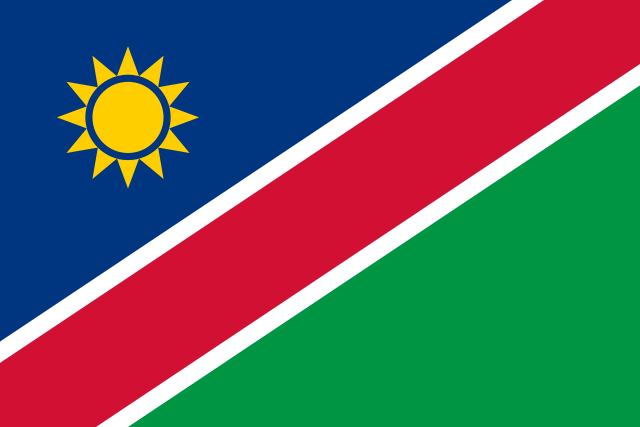We can now welcome Africa to the “Diebold Age.” Electronic voting machines have been used in an African election for the first time ever in Friday’s Namibian elections. The machines were made in India, which has extended its existing IT sector into the design and production of electronic voting machines.
Both a presidential election and a parliamentary election were on the Namibia ballot, and over 1.2 million Namibian citizens are registered to vote. 9 candidates are seeking the open presidency, while 16 parties are contesting seats for parliament.
The ruling party, SWAPO Party (formerly South West Africa People’s Organization or Südwestafrikanische Volksorganisation) is expected to win as usual. (They’ve won every time since 1990 and are currently ahead in the projections today.) SWAPO led the Namibian war of liberation against neighboring Apartheid South Africa, which had annexed the country illegally after taking it from the German Empire as a League of Nations mandate colony in the aftermath of World War I. Several years before the Apartheid Government fell in 1994, South Africa agreed to give up the territory and allow it to become independent and Black-ruled.
More on the election procedure, from Reuters:
Despite an 11th hour challenge from the opposition over the lack of a paper trail from electronic voting, the election commission was using about 4,000 voting machines for the presidential and parliamentary vote instead of paper ballots.
In the booth, voters found a gray electronic device with pictures or logos of the candidates and a green button next to each one. Instead of marking a cross on paper, voters selected their choice by pressing the button.
[…]
While there is no history of electoral fraud in Namibia unlike in many of its neighbors, logistical problems meant the results from the vote in 2009 took a week to emerge. The election commission has this time promised them within 24 hours.
The election commission also says they cut their ballot printing budget for the entire election by 90% by switching to electronic voting machines (although presumably some of the savings were spent to buy the machines).
Elections director Paul Isaak said that instead of spending N$20 million ($1.81 million) printing ballots, this year the commission had achieved an “enormous saving” by spending just N$2 million ($181,000) on such paper – one for each voting machine.



